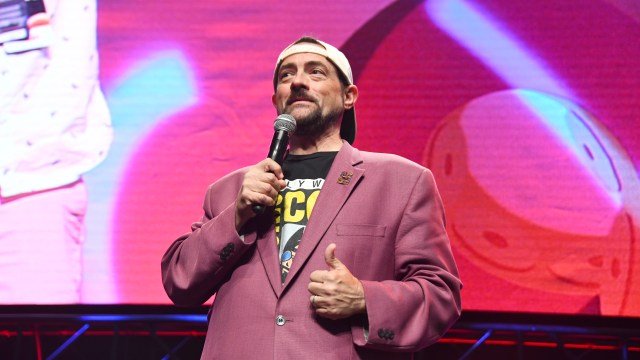“I don’t feel guilty about it,” Peterson says matter-of-factly about how she and her team acquired the character from under the station’s nose. “I lived so much of my life not knowing where my next paycheck would come from, so for this job to come along where we could see the potential of making money—and having fun—was mind-blowing.”
(Peterson and Pierson divorced in 2003; as part of their settlement, Peterson retains full ownership of Elvira and pays her ex-husband a portion of her earnings.)

To thine own brand, be true
Once Peterson owned Elvira outright, she put her creation to work. Using shock jock Howard Stern as a guide, the actress set out to be the self-described Queen of all Media in the 1980s and 1990s, saying yes to appearances in television, films, comic books, video games, albums, and pinball cabinets.
Naturally, Elvira’s power grew stronger whenever the calendar flipped to October. As Halloween approached, Peterson would step up her number of live appearances, including an annual song-and-dance show at Knott’s Scary Farm—the spooky version of storied California theme park Knott’s Berry Farm. Elvira merch reliably flew off shelves around Oct. 31, as well.
“There were very few things we turned down,” Peterson says, laughing. “I do remember that a big company wanted to do a high-end Elvira perfume sold exclusively at Neiman Marcus, and I turned them down! I said, ‘That’s not who Elvira is. She’s a beer-drinking girl, not a champagne-swilling lady.’” (Peterson did eventually green-light a lower-end perfume that retailed at drugstores.)
Speaking of beer, one of Peterson’s most successful—if ultimately cursed—business deals was a famous mid-‘80s Coors campaign that plastered images of Elvira on billboards and supermarket standees across America. Even though the Mistress of the Dark’s seal of approval provided an ample boost in sales, the conservative executives in charge of the company were never comfortable with her sex appeal. Coors dropped the Elvira campaign in 1988, eventually bringing her back in 1991, only to drop her again in 1995.
While Peterson says getting dumped by Coors not just once, but twice, was “devastating” in the moment, her roller-coaster experience with the company did provide a crash course in brand marketing—and helped her solidify exactly what she wanted Elvira’s brand to be when other eager partners came calling.










